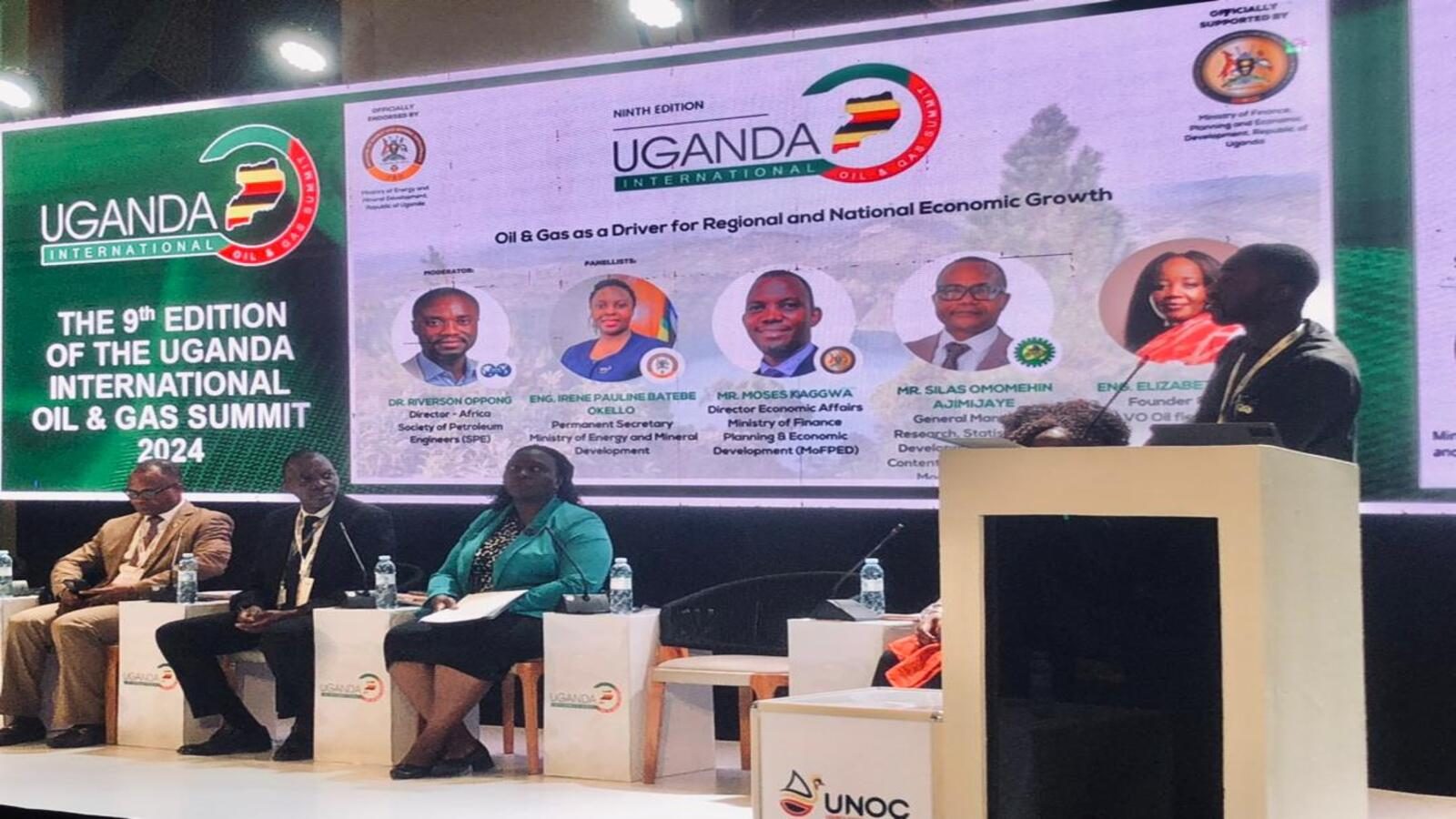Share
With estimates showing that Uganda might earn up to $2 billion a year from taxes, royalties, license fees, profit oil, and its guaranteed participation in upstream oil projects, the government intends to use oil earnings to diversify the economy.
Despite opposition from both inside and outside the country, Uganda is making steady progress toward becoming an oil-producing nation.
More than 70% of Ugandans believe that oil production will boost the country’s economy, which has long suffered from poverty and high unemployment rates. With an estimated 6.5 billion barrels of oil reserves, the country is prepared to unlock tremendous economic potential.
The Permanent Secretary of the Ministry of Energy and Mineral Development, Eng. Irene Batebe, reiterated the government’s commitment to a strong legislative and regulatory framework during the 9th Uganda International Oil and Gas Summit.
This framework is intended to handle issues related to public health, environmental sustainability, and making sure that the industry benefits nearby communities.
“We have established a legal framework that addresses all important facets, such as health, environmental sustainability, and making sure the local population gains from the industry,” Batebe said.
By avoiding the traps of the so-called “oil curse” that has afflicted other African countries, she underlined that the goal of Uganda’s oil wealth is to contribute to long-term prosperity for its inhabitants.
Production has been delayed because of regulatory procedures and infrastructure issues, notwithstanding the encouraging prognosis.
The Ministry of Finance and Economic Development’s head of economic affairs, Moses Kaggwa, acknowledged these setbacks but underlined Uganda’s commitment to sensible oil development, citing examples from countries like Ghana, where hurried oil exploitation resulted in unstable economies.
“Oil and gas in Uganda are turning into a reality.” Kaggwa emphasized the significance of getting things right to prevent making the same mistakes twice, saying, “We have worked hard to create a favorable fiscal environment and build the necessary infrastructure.”
With estimates showing that Uganda might earn up to $2 billion a year from taxes, royalties, license fees, profit oil, and its guaranteed participation in upstream oil projects, the government intends to use oil earnings to diversify the economy.
It is anticipated that this revenue will support social programs, important infrastructure projects, and attempts at economic diversification.
By processing 60,000 barrels of oil per day, Uganda hopes to lower its import expenditure for petroleum products, which is currently over $1 billion yearly.
This will increase the nation’s income by lowering the cost of importing petroleum and facilitating the export of refined goods.
Environmental issues still exist, though. The risks of oil exploration in Uganda’s delicate ecosystems, especially in the Albertine Graben region, which is renowned for its abundant biodiversity, are a source of concern for critics.
The European Investment Bank (EIB) and Standard Chartered Bank are among the international financial institutions that have committed to supporting Uganda’s oil industry, provided that the government carries out strict environmental and social governance (ESG) regulations.
The creation of native content is one of Uganda’s main priorities. The Uganda National Petroleum Authority (UNPA) Board Chairperson, Lynda Biribonwa, emphasized that local businesses in industries including supply chain management, infrastructure, and logistics had been given contracts totaling $17 billion.
These initiatives will improve local knowledge and generate employment opportunities.
The economic advantages of oil extraction for Uganda are evident, notwithstanding persistent complaints.
The nation’s oil wealth has the potential to revolutionize its economy and benefit its citizens in the long run if it is managed carefully.
Comments from Readers









